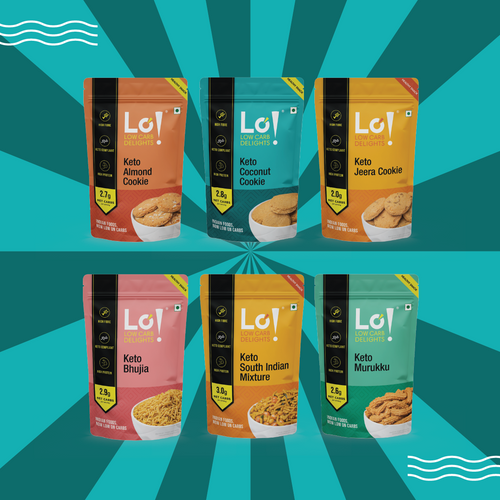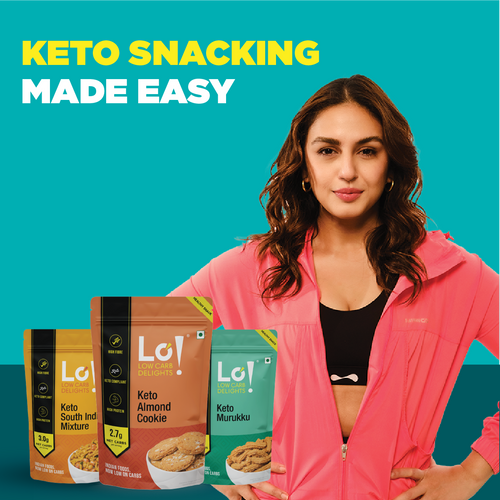
How Much Protein Do You Really Need? Understanding Your Daily Protein Requirements
Protein is one of the essential building blocks of life. From repairing tissues and building muscle to supporting immune function and maintaining skin and hair health, its role in our daily diet is indispensable. But how much protein does your body actually need each day? The answer isn’t one-size-fits-all—it depends on several factors such as age, sex, activity level, weight goals, and overall health status.

Why Protein Is Crucial for the Body
Every cell in the human body contains protein. It plays a role in nearly every biological process, including:
-
Muscle growth and repair
-
Enzyme and hormone production
-
Immune response support
-
Transport of nutrients and oxygen
-
Cell regeneration and healing
Without adequate protein, the body begins to break down its own muscle tissue to meet its needs, which can lead to fatigue, weakness, and a suppressed immune system.
Daily Protein Requirements Based on Lifestyle
Protein needs vary drastically depending on the individual. Here’s a simple breakdown of average protein requirements:
|
Lifestyle Type |
Protein Requirement (grams per kg of body weight per day) |
Example (for 70 kg person) |
|---|---|---|
|
Sedentary Adult |
0.8 g |
56 g |
|
Active Adult |
1.2 – 2.0 g |
84 – 140 g |
|
Endurance Athletes |
1.2 – 1.4 g |
84 – 98 g |
|
Strength Training / Bodybuilding |
1.6 – 2.2 g |
112 – 154 g |
|
Older Adults (above 60) |
1.0 – 1.2 g |
70 – 84 g |
|
Weight Loss (Calorie Deficit) |
1.6 – 2.0 g |
112 – 140 g |
Signs You May Not Be Getting Enough Protein
Many people unknowingly consume less protein than required. Over time, this deficiency may present through various symptoms:
-
Constant fatigue and weakness
-
Loss of muscle mass
-
Hair thinning or hair loss
-
Brittle nails and dry skin
-
Frequent infections or slow wound healing
-
Mood swings or depression
-
Persistent hunger or food cravings
These signs may appear gradually, especially in people following restrictive diets, aging adults, or vegetarians and vegans without proper planning.
Factors That Affect Protein Needs
Several internal and external factors influence your daily protein needs:
-
Age: Older adults need more protein to preserve muscle mass and strength.
-
Gender: Men typically have higher muscle mass and require more protein than women.
-
Physical Activity: Athletes, especially those involved in strength training or endurance sports, need higher protein intake.
-
Health Conditions: Recovery from illness, surgery, or chronic conditions increases protein requirements.
-
Diet Type: Vegans and vegetarians may require slightly more protein due to lower digestibility of plant-based sources.
High-Quality Protein vs. Low-Quality Protein
Proteins are made up of amino acids—nine of which are essential and must be obtained from food. High-quality or "complete" proteins contain all nine essential amino acids and are generally found in:
-
Eggs
-
Chicken, fish, and lean meats
-
Dairy products
-
Soy products like tofu and tempeh
-
Quinoa and buckwheat (plant-based complete sources)
On the other hand, most plant proteins (except soy and a few others) are considered “incomplete” as they lack one or more essential amino acids. However, by combining different sources (like beans and rice), one can still meet complete protein needs.
How Much Protein Per Meal?
Distributing protein intake throughout the day helps improve muscle synthesis and keeps energy levels stable. Experts suggest aiming for around 20–30 grams of protein per meal, depending on your total daily goal. Here's a sample day for a moderately active adult targeting 100g of protein:
|
Meal |
Example |
Protein (grams) |
|---|---|---|
|
Breakfast |
Greek yogurt with seeds and berries |
25g |
|
Lunch |
Grilled chicken salad with chickpeas |
30g |
|
Snack |
Boiled eggs + almonds |
15g |
|
Dinner |
Paneer stir-fry with veggies |
30g |
Can You Get Too Much Protein?
While it's rare to consume dangerously high levels of protein from food alone, excessive intake from supplements and diets overly focused on protein can stress the kidneys in individuals with pre-existing kidney conditions. Additionally, over-reliance on protein can result in inadequate intake of fiber, healthy fats, and micronutrients.
Balance remains key. Aim to meet your protein requirements while also including a variety of whole foods, colorful vegetables, healthy fats, and slow-digesting carbohydrates.
Protein and Weight Management
Protein is particularly effective for weight loss and management due to three key reasons:
-
Satiety: High-protein meals promote fullness and reduce cravings.
-
Muscle Preservation: Protein helps maintain lean muscle mass during calorie deficits.
-
Thermic Effect: The body uses more energy to digest protein compared to fats or carbs, slightly increasing calorie burn.
These benefits make high-protein diets popular among those looking to lose fat while maintaining muscle tone.

Best Protein Sources to Include in Your Diet
Whether you're omnivorous or plant-based, here are top-quality protein options:
-
Animal-based: Eggs, chicken, turkey, fish, lean beef, dairy, whey protein
-
Plant-based: Lentils, beans, tofu, tempeh, edamame, quinoa, hemp seeds, pea protein
-
Snack-friendly: Greek yogurt, roasted chickpeas, boiled eggs, protein bars with clean ingredients
Summary
Understanding how much protein your body needs is crucial for overall health, energy, strength, and optimal weight. While daily requirements vary depending on activity level, age, and health status, a balanced intake of high-quality protein sources—spread across meals—can greatly benefit muscle maintenance, metabolism, and satiety. Tuning into your body’s signals, prioritizing real whole foods, and including protein with every meal can make a lasting difference in your health journey.
For protein-rich, low-carb, and delicious food choices tailored to your needs, explore Lofoods’ curated range that supports your wellness goals naturally.
This Blog post is an initiative by Lo! Foods, to provide accurate and Nutritionist / Doctor approved information related to Health. Lo! Foods is India's leading brand for Everyday Functional Foods. Foods designed for specific Health conditions or Needs. Lo! Foods also runs India's largest range of Low Carb Healthy Cloud Kitchens, under the brand names of Lo!, ProteinChef, ATH (All Things Healthy) and DiabeSmart.















Leave a comment
Your email address will not be published.